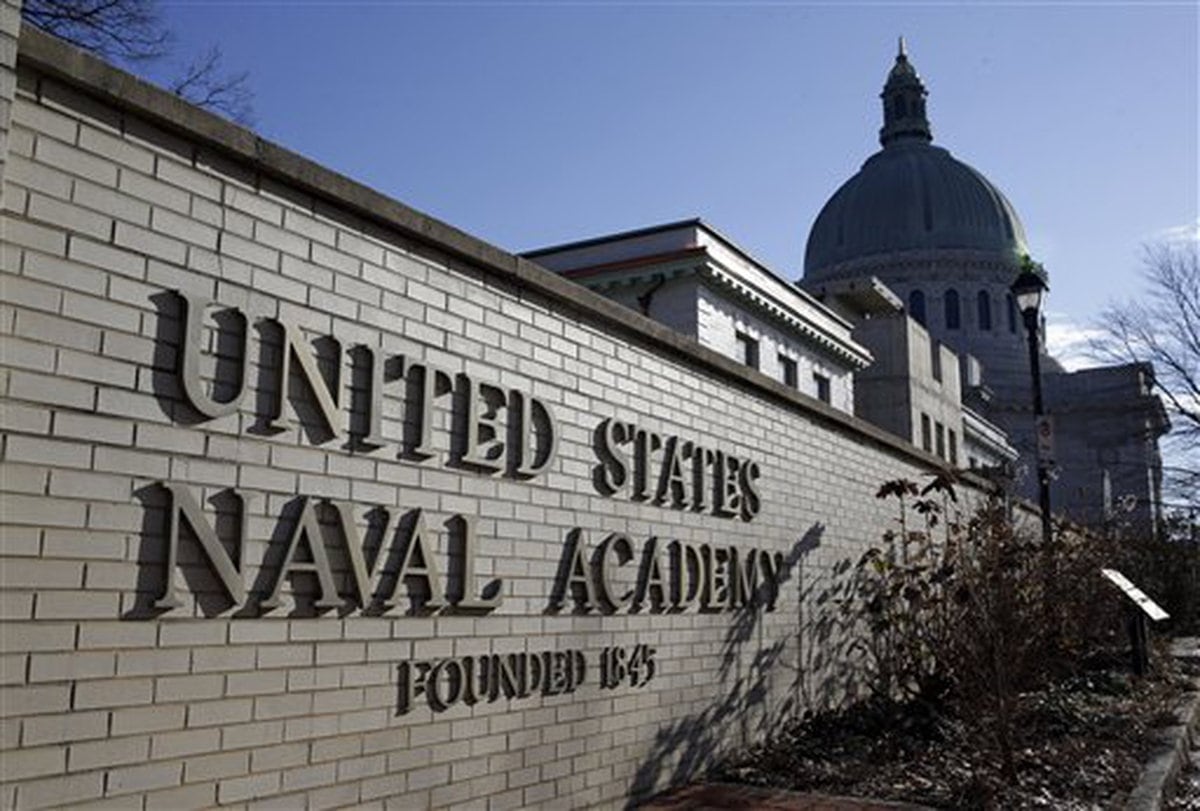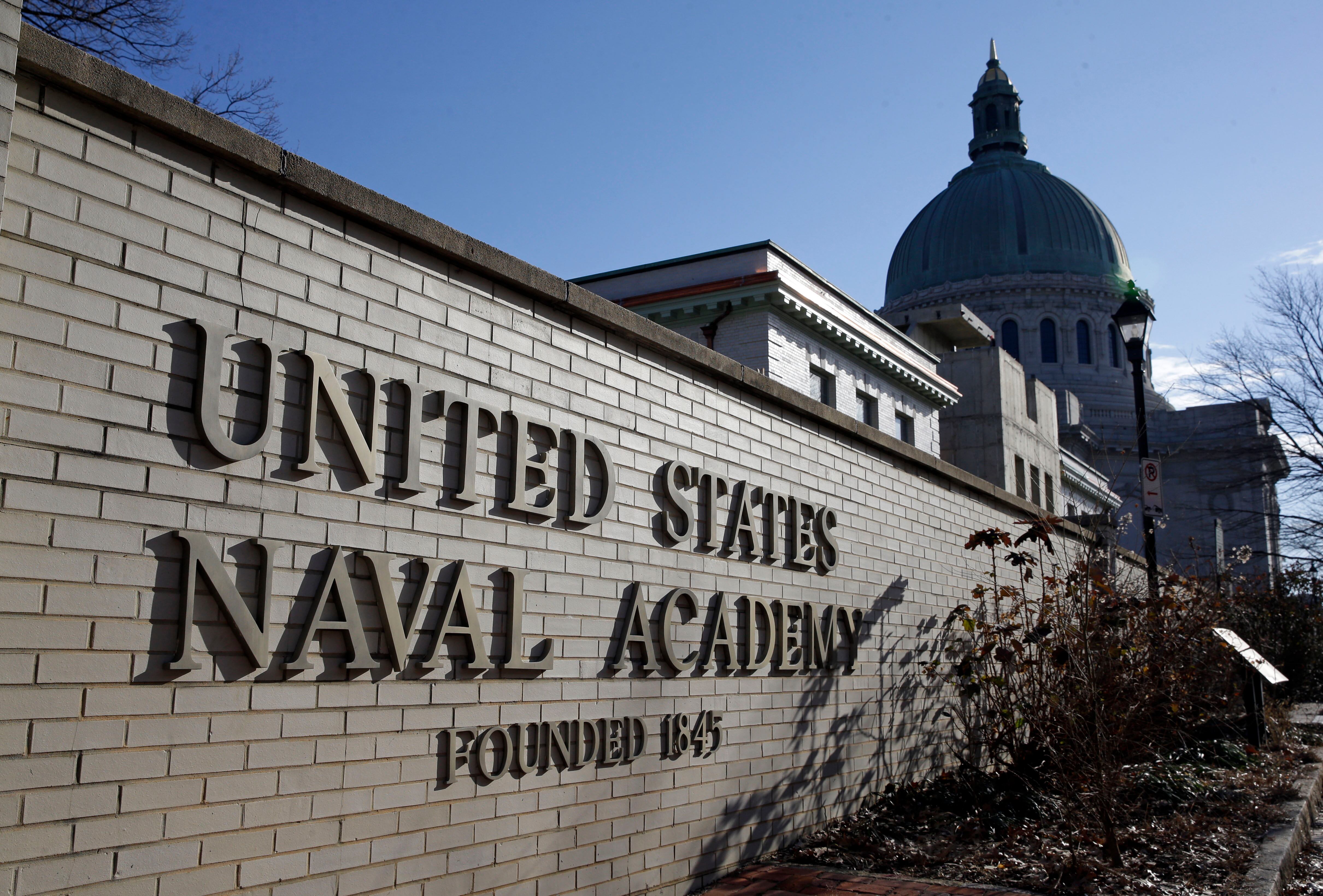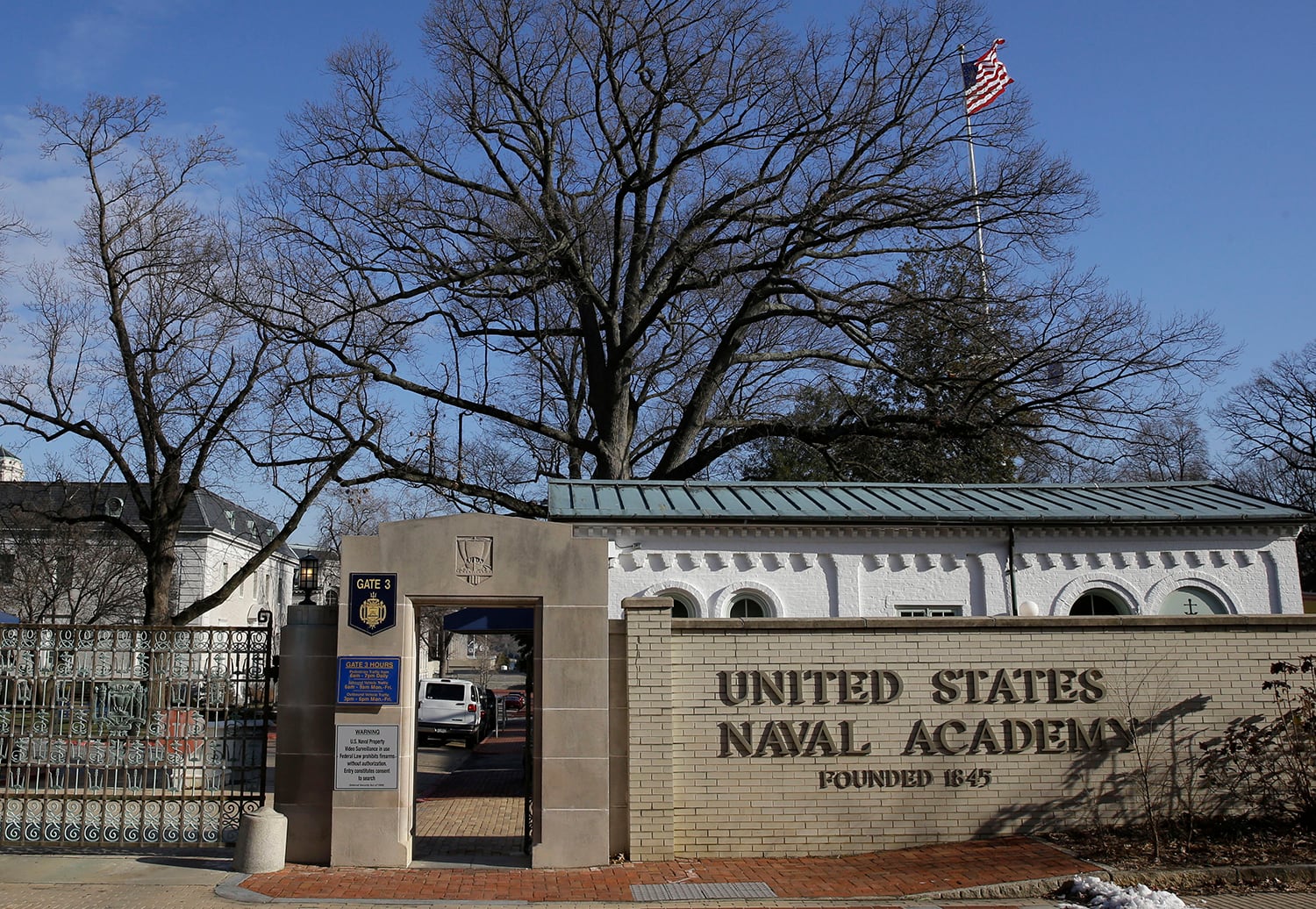ANNAPOLIS, Md. — A U.S. Naval Academy professor who was removed by the academy after an investigation into his conduct in class was reinstated to his job by a federal board Wednesday.
The U.S. Merit Systems Protection Board ordered the reinstatement of Bruce Fleming with back pay within 20 days. The English professor was removed in August.
Administrative Judge Mark Syska wrote in the order that the primary witness in the case "had severe credulity issues." He also wrote that the purported victims in the case, who were students, "did not generally take offense or have any actual issue with the appellant."
"Moreover, much of the charged conduct, as noted by the investigating panel, did not appear to be actual misconduct in the context of free-wheeling classroom discussions," Syska wrote.
Jason Ehrenberg, Fleming's attorney, said academy officials were trying to punish his client for criticizing the academy.
"Really what he was being attacked for was his outspokenness, his teaching style and his criticism of the academy," Ehrenberg said.
RELATED

Cmdr. Alana Garas, an academy spokeswoman, said the Navy was reviewing the decision.
"The decision becomes final August 28, 2019, and will be implemented by the Naval Academy, unless the Department of the Navy files a petition for review (appeal)," Garas wrote in a statement. "The decision as to whether or not to file the petition for review is under evaluation."
Fleming had been a civilian English professor at the academy since 1987.
Accusations against him included allowing students to tell jokes of a sexual nature in class, discussing sexual matters in class, emailing partially clothed photos of himself to his students, and touching students on the neck, shoulders and back in class without their consent.
Syska wrote that no one who received the photos appeared particularly offended by them, except for the primary complaining midshipman. Syska also wrote that he was "hard pressed to find misconduct" in the touching allegations.
Syska described a complaining midshipman as being an 18-year-old from a conservative family who had attended only religious schools in his first semester of college who received the first C grade in his life from Fleming. Syska wrote that the testimony gave the impression that his complaint "was motivated more by animus for his grade than any sort of genuine concern about the appellant's teaching style."
"The appellant appears to be a rather unique professor at the academy," Syska wrote. "He is irreverent, theatrical, fashion-conscious, outspoken in his criticism of the academy (both in the classroom and his writings), and liberally sprinkles his classes with profanity and discussions of sexually-related topics (from condom use to transgender surgery)."
RELATED

In 2005, the academy’s superintendent privately rebuked him for a Navy trade magazine essay that criticized the admissions process. In 2017, he also wrote an op-ed criticizing Vice President Mike Pence and other graduation speakers for portraying graduates “as superior to those people they are supposed to defend.”





